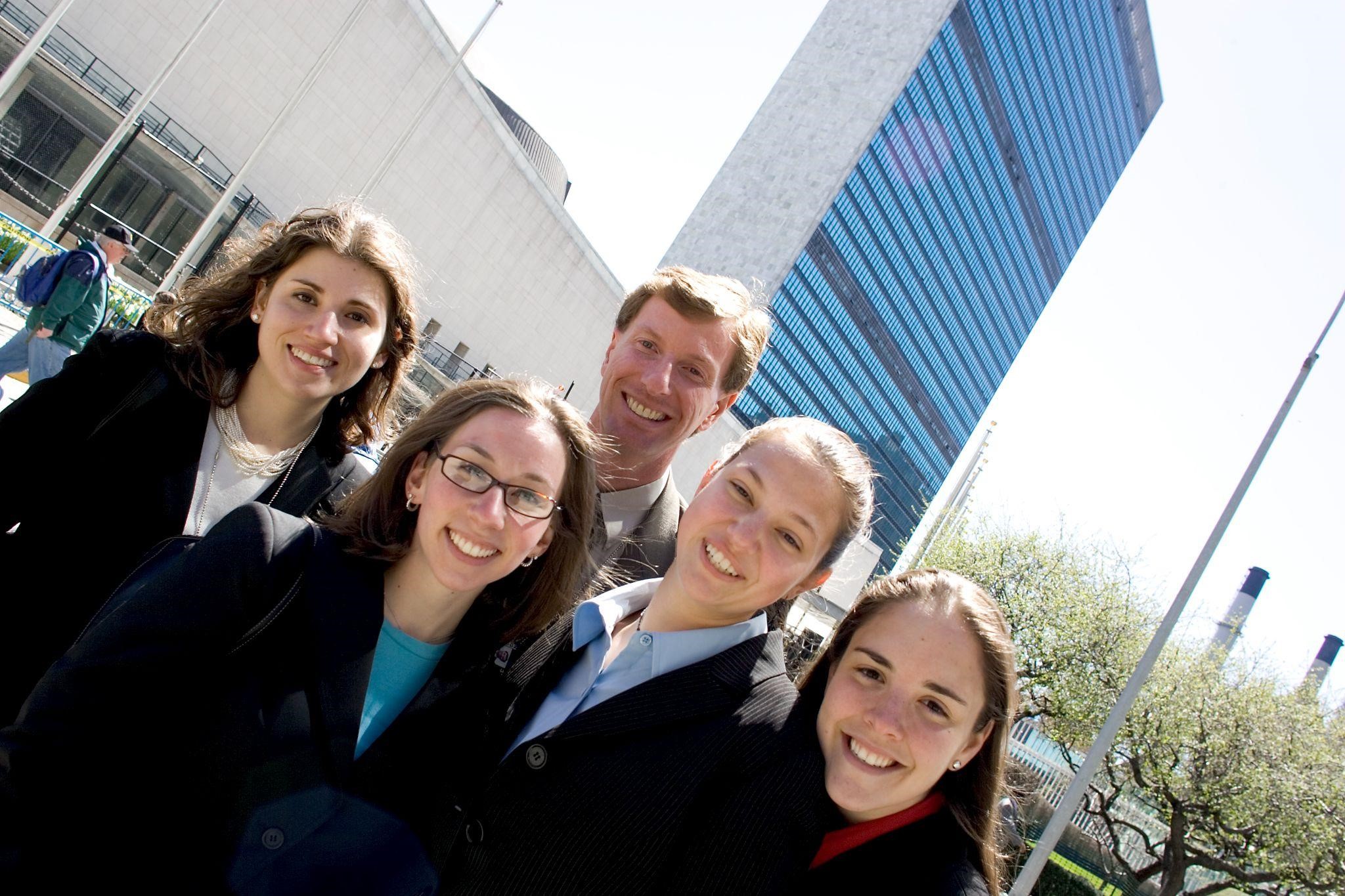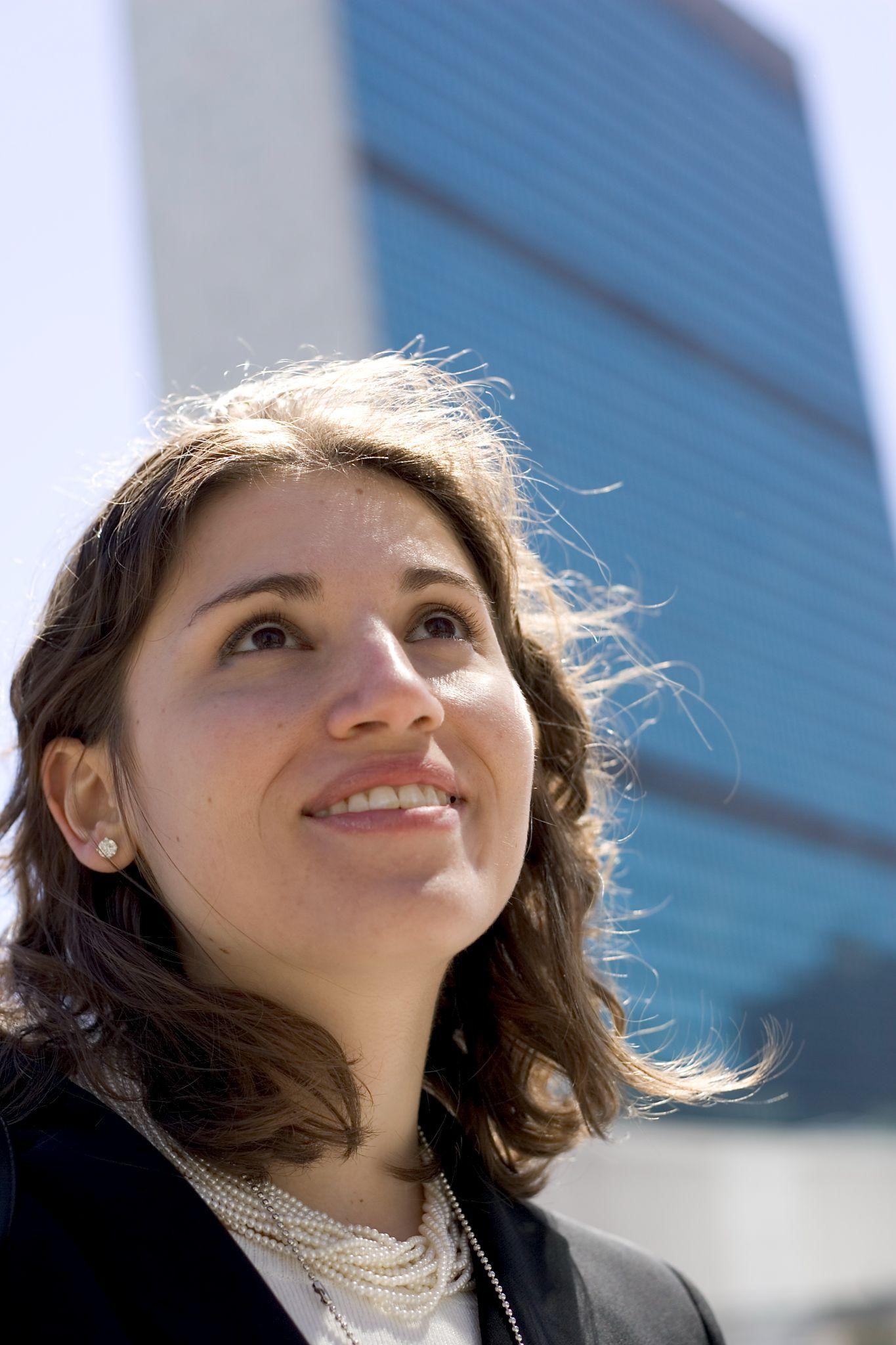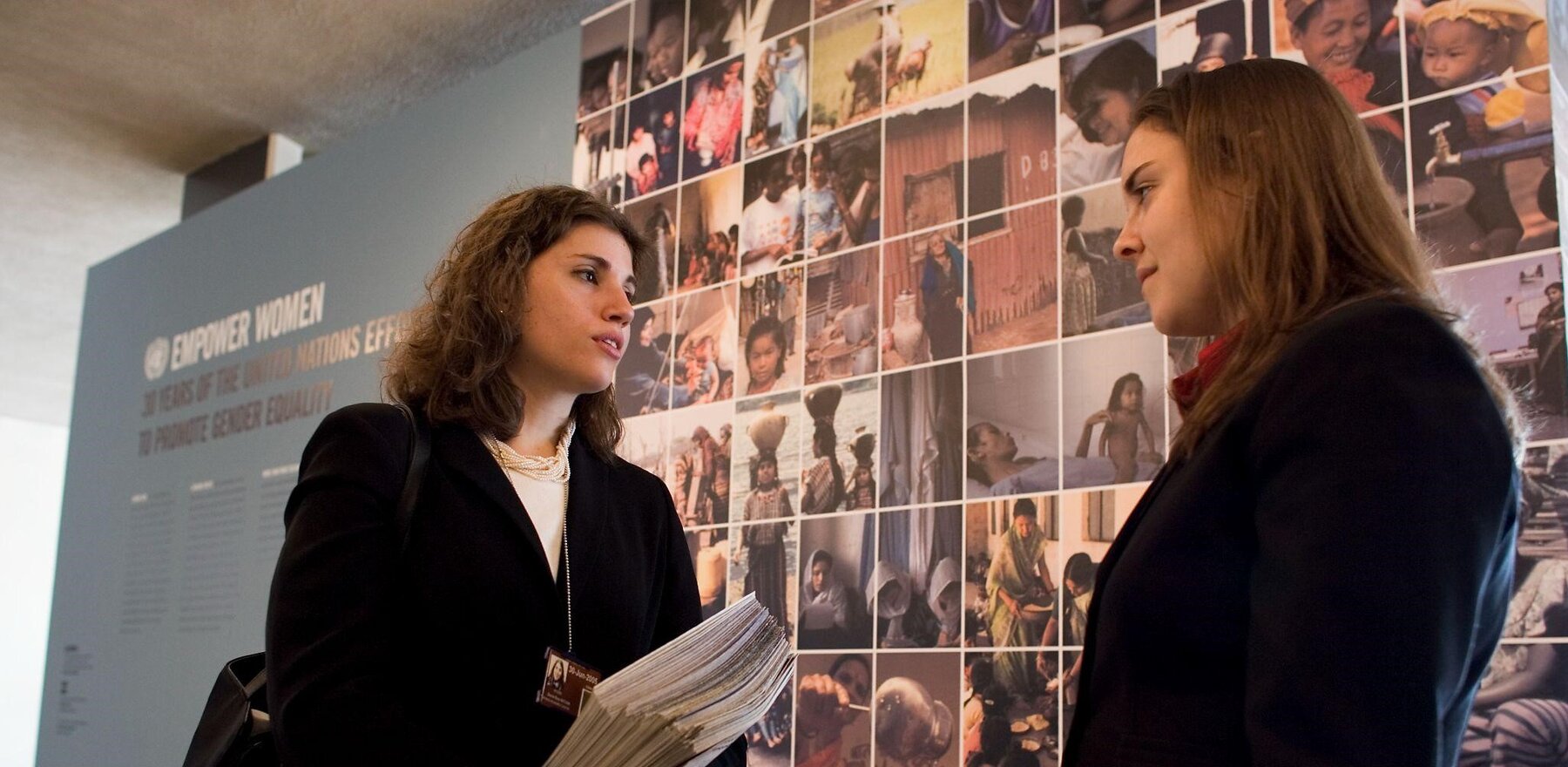Barret Katuna, a Lehigh University alumna, began her post-graduate career as an intern with the Department of Global Communications at the United Nations. During her time at the UN, she worked to organize briefings between Mission Representatives, NGO leaders, and UN officials to address pressing global issues. Today, Katuna serves as the Executive Officer at Sociologists for Women in Society (SWS), an organization accredited by the UN Economic and Social Council, and the Department of Global Communications. Under her leadership, SWS actively participates in UN conferences, including the UN Commission on the Status of Women, where members may present their research.
What was your role as an intern at the UN, and what did some of your responsibilities include?
I was one of four or five interns. I was there for six months, so they gave me the task of working on the weekly briefings. Every Thursday there was a briefing in the library, and it is focused on a particular issue. It could be disarmament issues, gender related issues, or environmental issues.  There's a Mission representative from a country who is working particularly on that issue, an NGO representative, and a UN representative who's working in the department that's particularly related to that issue. My job was to pull together information for a link. It was called the DPI link. I would put together all the information for the briefing, and I would have to invite people. I feel like I was doing a lot of things that were way above my pay grade. It was really empowering to think about the fact that I was getting out this information to all of these people on a weekly basis.
There's a Mission representative from a country who is working particularly on that issue, an NGO representative, and a UN representative who's working in the department that's particularly related to that issue. My job was to pull together information for a link. It was called the DPI link. I would put together all the information for the briefing, and I would have to invite people. I feel like I was doing a lot of things that were way above my pay grade. It was really empowering to think about the fact that I was getting out this information to all of these people on a weekly basis.
Paul Hoeffel was a journalist. I learned how to write like a journalist in that particular environment. I remember thinking a lot of labor goes into this one piece of paper, the DPI link. We'd email that paper out, and we would also print some copies out, and we'd give it out at the Thursday briefing. Hoeffel would generally moderate, and then people in the audience would ask questions. I was one of the people responsible for running around with the microphone. It was very helpful in terms of where I landed in my career. I'm an executive officer of a nonprofit, and we hold academic conferences. It's often focused on event management, and event planning. The UN even helped me learn about the politics of the microphone. Who's getting the microphone? It can be pretty contentious. Who gets to speak and why? Why are only white people talking? Why are only older adults talking? Why aren't you giving it to younger people or people of color? That's something that I became aware of during my time at the UN that I carry with me now to make sure that there are people of all backgrounds whose voices are heard and everyone gets a chance to ask a question.
Was there a global or local leader or NGO president you met that impacted you significantly?
Paul Hoeffel really had a major impact on me. He was the Chief of the Section, and I feel like he treated me like I was a staff member, not like I was an intern. He really trusted me. He placed a lot of value in my insight and consulted me like I was a colleague, and didn't see me as a student. I think the most valuable internships you can have are when people just give you a project and they really trust you. At the beginning you might have a lot of markups on your work, but then as time goes on, you find your voice. I think that he's the one who had the biggest impact on me. It was pretty incredible that he put that trust in me.
How did your involvement in the Lehigh/United Nations partnership impact your worldview?
 It impacted my worldview in the sense that I learned everyone's lens is shaped by their background. Obviously you're going to look at a crisis in part of the world based on your own worldview. I think sometimes you can run into a challenging experience if you assume that everyone has the same worldview or the same lens as you. The UN really challenged me at an early point in my career to listen and understand people from all ages, all countries, and not make assumptions. It taught me to really keep an open mind when meeting new people.
It impacted my worldview in the sense that I learned everyone's lens is shaped by their background. Obviously you're going to look at a crisis in part of the world based on your own worldview. I think sometimes you can run into a challenging experience if you assume that everyone has the same worldview or the same lens as you. The UN really challenged me at an early point in my career to listen and understand people from all ages, all countries, and not make assumptions. It taught me to really keep an open mind when meeting new people.
If you could give one piece of advice to current Lehigh students looking to engage with the Lehigh/United Nations partnership, what would it be?
Go for it. I think it's a great space to learn about issues that are not part of the mainstream conversation often. I remember mornings where I would look at what's being discussed in the New York Times, and then look at what's being discussed like in the UN news center. They were very different. It's a great opportunity that you have at your fingertips right to go and engage with people who really want to hear from you. There's a lot of emphasis on youth participation at the United Nations, because the next generation needs to be involved in these policies, and we need to have intergenerational conversations.
I think that it's a space where you can really test out your skills, in a space that's safe, where all voices are respected. There are disagreements, of course, but I think that the Lehigh/United Nations partnership gives you an opportunity to really have a front seat in major conventions, major conversations, and networking opportunities that are just unbelievable. Jump at the opportunity, and you can grow and learn. It's a place where it's okay to make mistakes.
The skills that you gain will be incredibly valuable out in the job market. I think that having the UN experience hugely strengthens your resume. I know for a fact that it helped me in my graduate school applications at UConn, and when I got there, the chair of the department wanted to work with me because she was a human rights scholar. I feel it really just kind of boosted my credibility, having that experience under my belt.
